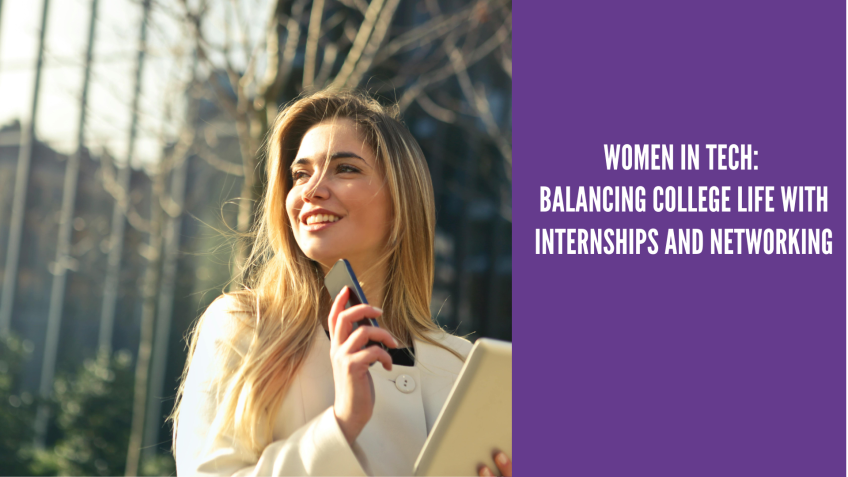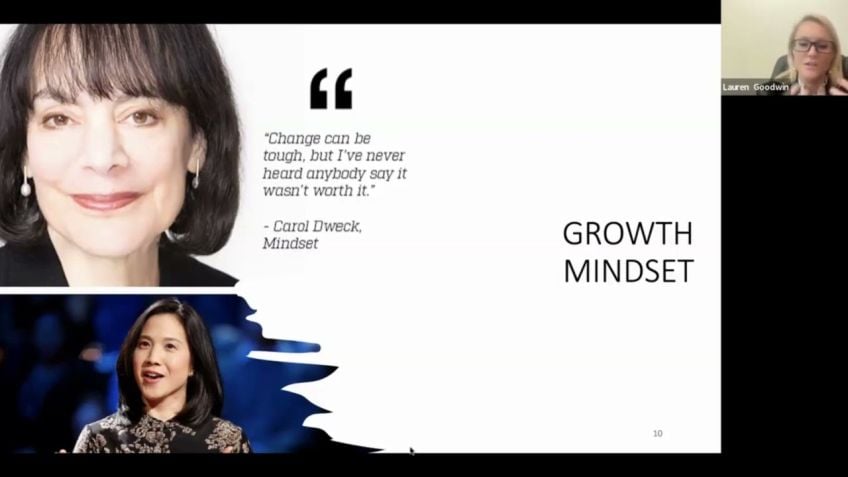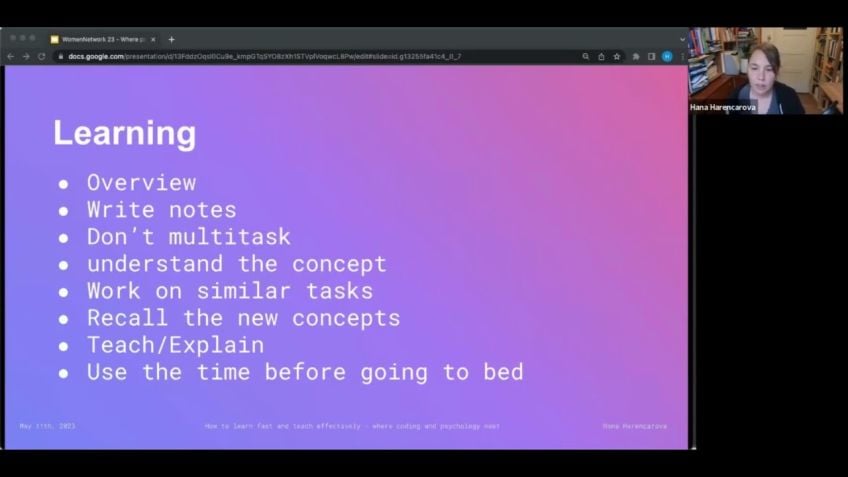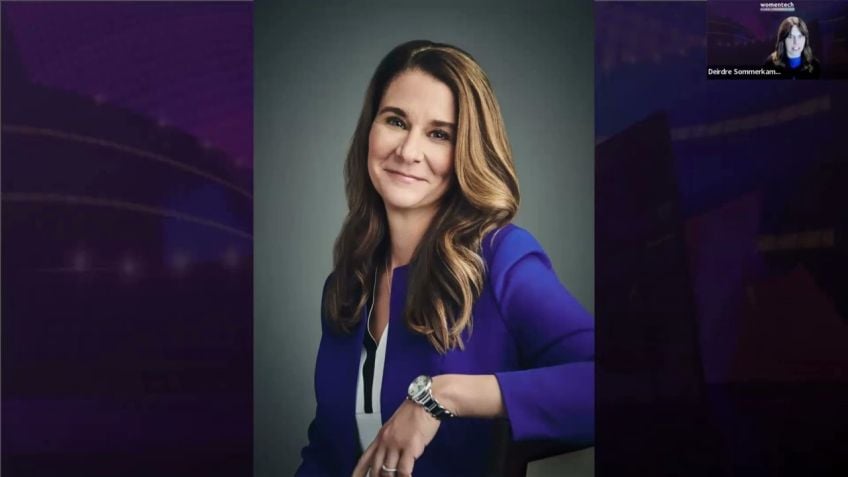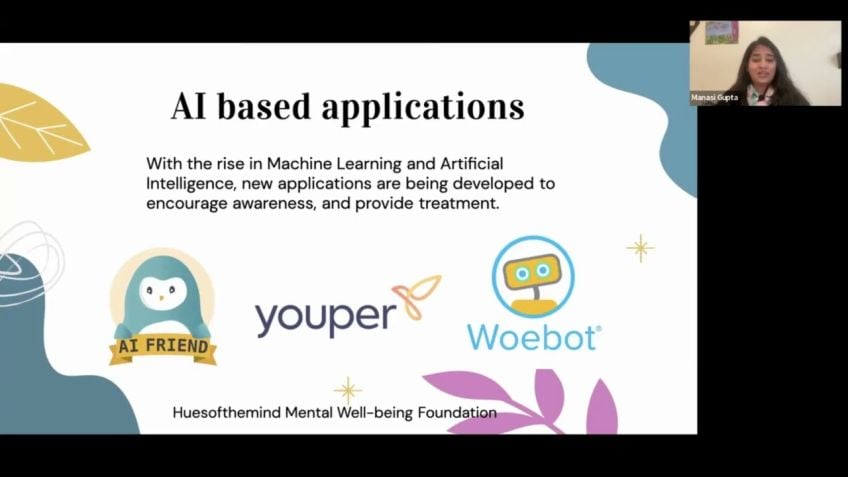Leading with Latinidad by Nia Asemota
Navigating a Non-Traditional Path to Tech
Hello and welcome everyone. Today, I want to share with you a tale of unexpected twists, unquenchable passion, and irreplaceable experience in the tech industry. It's a story about a tenacious Afro-Latina named N Asamoah who transitioned from a pre-med track to computer science and eventually landed a role at NASA.
Challenging The Norm
N Asamoah originally began her journey with the aspiration to become a doctor, heavily influenced by her family. Being from a Puerto Rican and Nigerian background, her family encouraged her to choose a profession that is conventionally considered financially stable. However, amid her medical journey, N realized that the path wasn't for her. She made a bold decision to switch her minor to computer science in her sophomore year.
The road wasn't easy, though. As a woman of color, and often the only person of color in her class, she faced significant challenges and bias, even from her advisors. Despite these obstacles, her passion and determination led her to persevere, catalyzing her journey towards a brighter future.
A Leap of Faith Leading To NASA
Discovering an opportunity to work with NASA through a LinkedIn post shared by a friend, N Asamoah applied despite her initial self-doubt. Her application process was straightforward and, to her surprise, she was accepted not just to work, but to handle software engineering tasks for the reputable organization.
Embarking on her journey with NASA, she experienced the occasional impostor syndrome, contemplating whether she was just a "diversity hire". These fears were eased when she met her mentor, a black woman who offered great support both in and outside of work.
Using Her Platform for Advocacy
In addition to her academic endeavors and her role at NASA, N Asamoah has been actively involved in Black Girls Code, a worldwide nonprofit organization committed to increased representation of black girls in tech-related fields. They provide workshops and summer camps with a focus on building foundational coding skills and a solid understanding of emerging technologies.
Her Own Creative Initiative
Utilizing her passion for drawing and recognizing the need for more representation of Afro-Latina and black individuals in media, N paired her advocacy work with a creative initiative. She created a coloring book aimed at inspiring and empowering young black and brown girls to pursue STEM fields. The book included word searches, crossword puzzles and highlighted achievements made by women of color in technology to serve as role models.
The Power of Self-Advocacy
N Asamoah's experience shone a spotlight on the importance of advocating for oneself, especially in a space that can often feel alienating and unwelcoming. A technical mishap just minutes before a major project presentation in college made her realize that it's essential to stand your ground and use your voice. She advises others, particularly those who find themselves in a minority within a working environment or a classroom space, to do the same.
Conclusion
N Asamoah's journey showcases the significance of perseverance, self-belief, and the need to pave the way for others in tech, particularly for underrepresented communities. She highlights the importance of community - the understanding that one's story can inspire others, and one's struggles can help ease the path for those who follow. In sharing her story, she hopes to inspire and encourage others to pursue their passion for technology, regardless of the obstacles they might face.
Video Transcription
OK, perfect. All right. So 30 times a time um by way of introduction, like I was mentioning earlier, my name is N Asamoah. Um just graduated from NYU studying Computer Science and B molecular science.Um So I can sort of like talk about my journey there, feel free to drop any questions. Um Essentially my story and my talk today will be talking about a non traditional path to tech. Um being able to switch, choosing your own passions, entrepreneurships, anything like that. So like I mentioned, I was studying these two things at school. Um initially had the desire and passion and also like that family influence to become a doctor and go to medical school. Um within school. I realized that that wasn't the path for me. Um And there's a lot of pushback from my family and my advisors just become being a doctor was like financially stable. So for more context, I'm Puerto Rican Nigerian. My dad came to the States when he was 21. My mom was the only person in her family to complete college at the time. So it was like, OK, you're, you know, this Afro Latina girl in New York. How do you exactly. Boricua. Um, how do you support your family? And they're like, ok, doctor. Right. So, went to school for that, realized it wasn't the journey for me.
Um, and I fell in love and switched my, uh, mi minor to computer science my sophomore year and when I tell you, like, I fell in love but it wasn't like an easy walk in the park. I had to retake some classes. Um and just being like one of the only in the classes. So there was this, which class is it? I believe it was like my, my data structures class, there's 200 students in the class. And I'm literally the only person of color. Like, yeah, those are difficult times. I remember going to the tutoring center and just going to different teachers and advisor, asking for help and support in the class and just have my intelligence questions being met with. You should know this, this maybe this isn't the path for you. So I wanna speak more about that story. Um And eventually how, you know, overcoming those obstacles and all the push back and the microaggressions eventually led me to NASA. So like I mentioned earlier, that was part of my experience. Um I just finished taking the second course in computer science. Um But like I mentioned, I had that passion. I had that drive. I wanted to tune out all background noise and I was able to find a lot of like courses, um went to youtube just other, a lot of like free resources online and to sort of prove it to myself um and understand and feel confident that, you know, I belong in this field.
There are the obstacles, there are all these voices around me, but this is something that I'm really passionate about and it's, it's really fun at the end of the day. Like I view computer science or coding, sort of like a math problem or a puzzle even. Um And in terms of NASA, I remember one of my friends, she sort of like a mentor role for me. She also went to NYU was also Latina. Um And she posted it on linkedin and she was like, yeah, like I found this resource, I found this opportunity to work at NASA. Um you should join and I was like, no way like that. I'm only in my first level of computer science. I'm told by my advisor that this would never be a path for me. Like I just, I don't know. And I remember it was the day before the application was due. Um And I was like finishing some homework and I was like, maybe I should just, you know, apply the application seemed fairly like, straightforward, just drop your resume, cover letter, your interest. What are you interested in? Um And what I want to say with that too is that follow your passions because a lot of things connect. Um I had no idea of like the work that was being done at NASA.
It seems so far out of touch, but there's a lot of like bio positions. If you're interested in like mixed reality artificial intelligence, the work that's being done there is so expensive. Um So definitely like apply, continue pursuing your passions, but I applied and it was, I think like the next month or like the next few weeks and I got an email. Um I was doing homework at the time and it was like, congratulations. Um You're gonna be working at the Garage Space Center in this role, doing software engineering. And I remember like, I called my mom and I started crying because it's like, first of all, being a Latina from the Bronx just switching over to computer science, this is NASA out of all everything. So that was like, so crazy to like process and still processing it right now. Um But I wanna say like a moral about stories just believe in yourself, trust in yourself and that what was meant to be will be. And it's so crazy too because even in my experience at NASA, like, mind you, this is my first technical internship. This is my first time, like coding professionally. This is my first time with like a major internship in general.
Um And I was like, OK, this is a huge company. I don't know anyone here. It was remote mind you. Um But I, I just didn't know what to expect and still felt that imposter syndrome and, you know, maybe they made a mistake on their application, maybe I am the quote unquote diversity hire that everyone was telling me about. Um And that was not the case. I remember my first day I met my mentor, she was also a black woman. So like we still talk today, that was an amazing experience and just being able to relate to her in and outside of the internship was really helpful. Um But I had an amazing experience there. I was in the different affinity groups. So there was like NASA for Latinos, there was the Black at NASA. Um There was also speed which is their like diversity program. So I was able to relate to those individuals and form that larger community. And also like our project was really interesting too. So sort of like following the story of diversity and representation in tech, we realized that a major barrier for underrepresented individuals entering the field is actually the language that's being used, right?
There's a huge learning curve in tech, whether you're talking about computer science, different fields of engineering, just that language that's being used in that jargon. Um And I faced this too when I was like, OK, I'll be working at NASA. What am I doing? Like, I'm reading these articles, everything seems so far out of touch. Um And that's the problem that we wanted to solve. So essentially, we created a website just to make the research, the data, the experiments that the engineers and sciences were doing easier for the general public to read, understand and also interact with. Um I know for me, I'm a very visual person. So we had like interactive coding, blogs, interactive models just so that anyone can interact and understand more of the data that you know, we're reading that we're processing. So that was like a snippet of my journey there. I got a return offer. Um So I'm just working that out to continue working in the space center that's in New York. Um The one from last summer was in Maryland, but it was remote. Um That's sort of like my journey continuing going on in software engineering. Um And also with that want to continue opening doors for other underrepresented students, especially girls in this field. Um So, one thing that I've been doing to sort of like equal the playing field or create opportunities is I've been working with black girls code.
Um So they are a global nonprofit, I believe they have like 15 chapters. So within the United States also opens one in South Africa. Um And essentially the mission and the goal is just to introduce girls as young as 7 to 17 to computer science, business coding, robotics, just different emerging technologies like artificial intelligence, anything like that. Um So specifically for me, the group I'm responsible for is 7 to 77, sorry, 7 to 13. Um And we would host like workshops every Saturday right now. If you have any little girls in your life, the summer camp is opening. Um So just go to black girls code.com. Um But also with that outside of like school tech and STEM, I have a passion for drawing. Um And you don't see a lot of representation, you know, Afro Latinas or black individuals in the media. Um and just different areas especially STEM specifically. So I was like, OK, how do I take a step to solve this problem? What is something that I've never seen when I was younger? What is something that would have helped me when I was younger? So I created a coloring book. Um So I created a coloring book with black girls code with the mission of just inspiring and empowering these young black and brown girls enter stem fields just because representation is everything, right?
Um I wanted to have images of them creating robots together, coding on the computer. Like I mentioned earlier, language is a huge um a huge barrier in tech. So I wanted to sort of like break this down by introducing word searches, crossword puzzles just so that as they color and skim through their building that um working vocabulary and then also a huge thing intact is just the lack of role models. Um and just not a lot of women of color see themselves as role models in this space. So towards the end of the book, I highlighted 15 amazing um women of color, whether they're NASA mathematicians, roboticists, they're studying ways to make artificial intelligence more equal, um just different.
And I wanted to highlight these known figures like May Jamison, Catherine Johnson, but also these unknown heroes like Gladys B Wells. She was the one who was very fundamental in creating the GPS that we use, you know, every single day, Ayanna Howard, she's done amazing work in, you know, sending robots and the Mars Rover to space. So all of these women that are unfortunately written out of the history book, I wanted to shed light and introduce their stories and how you serve as inspiration for these young girls. So that's some like the work that I'm doing that that's being done and that I'm doing right now. Um I, since I've recently graduated literally a month ago, um sort of like entering my early career, I definitely want to continue in software engineering and also opening doors for other students because it's not easy, you know, being one of 200 in the classroom is not easy having your intelligence question, having your advisor tell you many times that if you stick in this field, you're not gonna graduate that you're not smart enough for this being spoken over in meetings, having your ideas undermined, having your presentations.
This is this one story. So I was in this class, it was called, it was one of my favorite classes too. Um It was called, I believe it was technology in the future of work. Um And we just explore different areas of tech. Um And we broke up into groups. So within my immediate group, I was the only girl, only girl of color, only person of color. Mind you. Um we had a presentation, we were just breaking down Microsoft Hololens talking about the potentials of, you know, mixed reality, virtual reality.
Um And what does that mean in terms of like health care society? What are the benefits, anything like that? I mean, just talking about a technical aspect as well. And I remember this is my final project and 10 minutes before I was like, let me just Frush over the powerpoint. Um look over everything and I realized all the slides that I contribute to were gone. Everything I brought in all the research I did was gone. And I remember going to the group chat, we had a group chat. It was myself and like the three other team members. And I was like, hi, like, um I'm going to the slides right now. Um You know, what's going on? Where's everything I contributed? And they're like, oh, we didn't think we needed it. And I was like, but we're presenting in 10 minutes. So, what am I gonna do? What am I contributing to the teacher's gonna view me and just ok, me is just there and they're like, oh, you can present the pictures minded. So, our final project everyone's getting graded. And I was like, no, I was like, hi. We, we've had this conversation, we've been working on this project for a long time now. Um, I don't know who deleted it, but can you undo it because we're presenting in 10 minutes? Everything was fine. We did a run through the night before.
So it was just very confusing um in the moment, but I've talked to like some of my mentors and other women of color in this space and they said that this is not a unique problem, which is very unfortunate. Um But something that my mom's always taught me since I was younger is just the power of advocating for yourself and not letting things slide. Um because I remember like I had to stand my ground at that moment. You know, I'm the, I think within that class, I was like one of two people of color. Um So it's just like standing your ground, making sure that you know that you belong, there will be a lot of background noise, but just as long as you stay true to yourself. Um And just use your voice because people will speak over you, people will undermine your intelligence. It's difficult to overcome, but it's something that in the moment you have to overcome. Um So that's sort of like from my story I'm reading in the chat right now that other individuals dealt with similar things.
Yes, it's not, it's not easy, it's not easy and something that like, I look forward to um, as I enter like my early career, just opportunities like this or black girls, code girls who code just other groups and support systems that it's like, OK, I can share my story. These are safe spaces that, you know, I just have that support system that we need to lean and fall back on when those times do get difficult. Um But I wanna make this as you know, interactive as possible. So feel free to drop any questions or also share your story in the chat. I'd love to read it. Um And just like continue this conversation. Um Jena said, my dad always told me never allow someone to tell you that you can't do something, not even yourself. No, I, I wanna emphasize especially the last part of that. Um Because there's a lot of times that I personally, oh, like I'm not, I'm not smart enough for this when I went to NYU and the core score was so rigorous and you know, I'm the only person in the class I was like, maybe I should transfer, maybe I should go to community college.
I don't, I don't belong here. You know, everyone seems like 4.0 straight A's off the bat. They understand all the engineering, all the math, all the CALC and I'm really struggling in these classes and I felt like I was the only one struggling. So I would say a testament to that I graduated. I did belong, I did it and this is only the beginning of my journey. But thank you so much for sharing that definitely just know that you belong in anything you belong in this field. Um just scrolling through the chat right now and also sorry for like the technical difficulties earlier. Um But I really appreciate like the feedback um and the comments in the chat too. I'm trying to think. Um Yeah, so feel free to leave anything in the chat. Um I'm trying to think of other stories or other organizations. So like I mentioned, if you have any like little girls in your life or non-binary, definitely check out black girls, code girls who code, there's this initiative that I worked with all throughout high. Um Sorry, all throughout college. Um It's called Engineering Tomorrow and essentially I would travel after class to different schools within the Bronx Brooklyn Queens just anywhere in the greater New York City area. Um and just introduce these high school students to different areas of engineering.
So one week we would focus on like civil engineering. The next week we do like computer science coding, computer engineering. Another week we'd be building robots um dealing with mechanical engineering just to give these students that work in their hand on experience so that they feel more confident entering a stem field in college, especially since a lot of them enter as undecided. We just wanted to sort of like hold their hand and, you know, guide them to the stem fields. So that's the program that's open the summer camps going on right now. Um, I believe they started at a middle school level going up to high school. Um I'm trying to think of other ones in high school. I did first robotics. So that's just a huge organization where it's actually international. Um But you have six weeks to build a robot and you all compete at this international competition. And I would say that for me, this was a huge like eye opener that I had the interest in maybe not studying engineering but being very hands on and working like an engineer. Um And this was in high school so I can sort of like tell that story too. But in high school, my mom convinced me to join the robotics team.
There's a lot of pushback for me since the team was like 36 members uh large and I would be one of five girls. I never had any experience coding, anything with mechanical engineering, anything with using like the heavy machinery, the tools, electrical and nothing like that. I, I had no idea. I sort of thought that the team would be like the robots that you see in the movies or the TV. And it, it wasn't like that. Um So eventually I joined the team after like a lot of conversations with my mom, she's like, this would look good for you. It's opening so many new doors. Robotics is like the hot topic right now. Um, and when I joined the team, it was nothing like I imagined it wasn't like the hot topic. It wasn't like the movies, it wasn't as inviting as I as I thought it would be. Um, so the way the team was structured, we had the mechanical, the programming, the electrical departments, right? And as you can imagine, those were very male dominated. And what were the girls doing? We were told to organize a toolbox sweep after lab sweep after, you know, the class erase, the chalk was very like task that didn't need any technical knowledge. But those are sort of the roles that we assumed.
And the other girls in the team were also freshmen with no experience. So I was like, ok, well, you know, we're on the team, let's contribute in any way we can. Um, and that didn't sit right with me, but I didn't know what to do. I didn't have the knowledge to contribute to those conversations. I didn't know how to work these tools. And every time I felt like I tried to learn, I was shut down or, oh, no, you should be doing this. You should be doing that so that was difficult to maneuver. Um But I remember it was my junior year. It was even sophomore, like the latter part or early junior year. But we competed against this all girls team at the Jacob J at Center New York. We competed against teams from China, Argentina Brazil, just all these international teams. But there's this one team in particular that stood out. So it was this all girls team, I think they had like 20 members. Um And it was so fascinating to watch them behind the scenes as you know, they fix their robot on the spot and they were, you know, debugging and fixing any code that broke. And I was like, wow, like I wanna do that, I wanna do that. Um So I remember I talked to them and I was like, wow, like this is so inspiring. Um You know, how did you guys get started? How did you build your confidence in this field? And that was a huge turning point for me.
I remember going to youtube, like I mentioned earlier and just learning the basics of coding at the time we were doing Java. Um But I was like, OK, let me learn basics of Java. Um The robot needs to turn its wheels, it needs to, the motor needs to be turned on. How do I do that? Right? So just a lot of like Google searches and youtube watches. Um And eventually I was able to apply that knowledge to the team and was able to graduate within and also like being the head of the programming and electrical department. So I would say like a huge takeaway from that is just believe in yourself. You know, there's space for you in these fields. It's gonna take a lot of work. I'm sure many of you are familiar with the term or the, the phrase, you have to work twice as hard just to be at an even playing field as everyone else. It's the sad truth. It's a sad reality, but it's gonna open so many doors. You just have to keep pushing, believe in yourself. And also as you keep pushing, believe in yourself, bring another individual up. And that's how you sort of like climb the ladder and this is how we break barriers in tech and open doors and have so many seats at the table for other individuals that look like you that look like me. So I would say definitely do that.
Um Yeah, feel free to drop anything in the chat. That's sort of like my story and how I got into tech, how I got into NASA um sort of like the impostor syndrome and like the challenges that I I face being Afro Latina within this field. But yeah, thank you so much.

